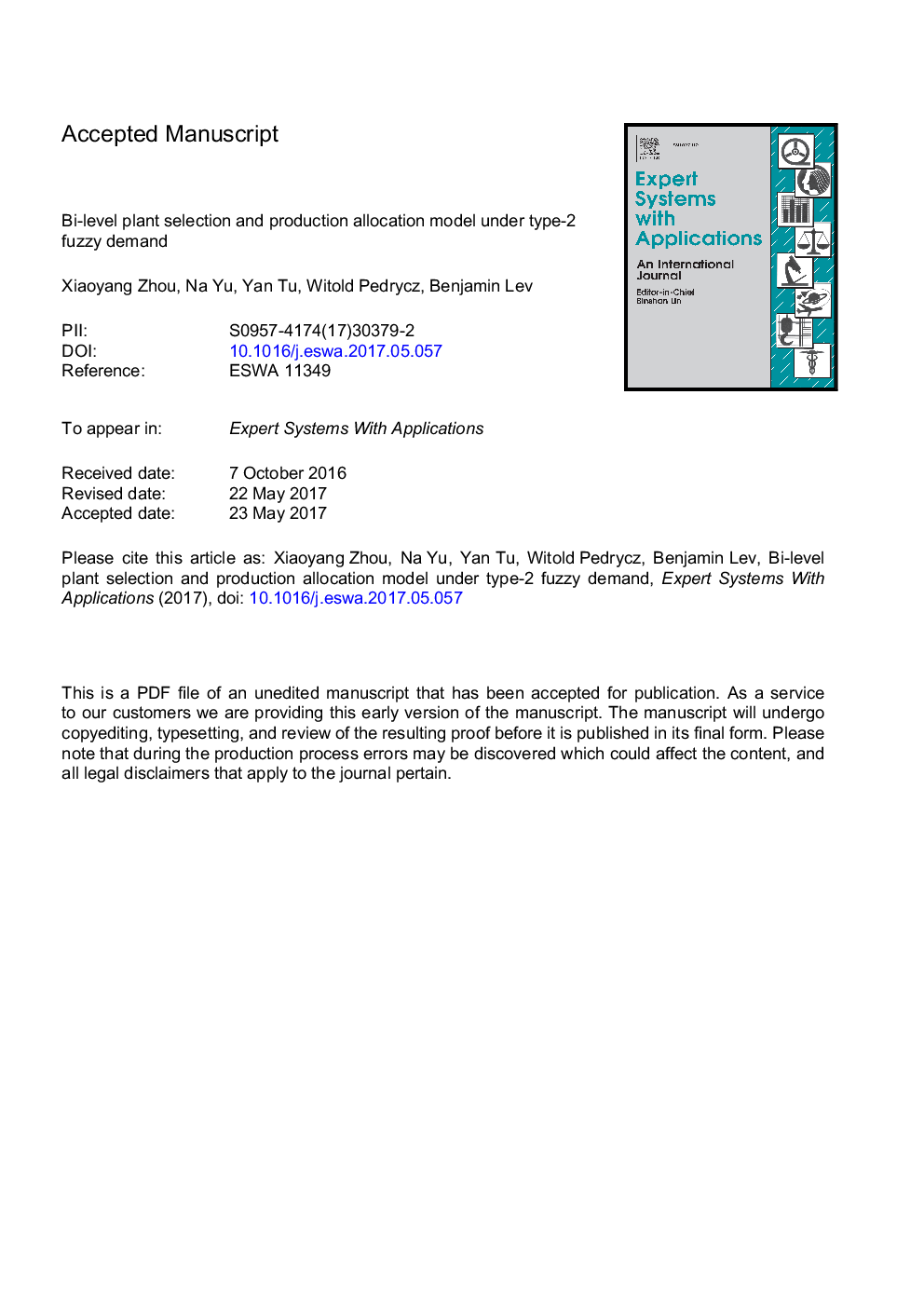| Article ID | Journal | Published Year | Pages | File Type |
|---|---|---|---|---|
| 4943314 | Expert Systems with Applications | 2017 | 26 Pages |
Abstract
This study is concerned with the plant selection and production allocation problem under the background of Original Equipment Manufacturing (OEM), which consists of a single controlling company regarded as the leader and multiple candidate plants as the followers. A bi-level programming model is proposed, where the plant selection optimization problem located at the upper level contains nested production allocation optimization problems positioned at the lower level. In this model, demands are described in terms of type-2 triangular fuzzy numbers. In order to handle the type-2 fuzziness, a general expectation reduction method which incorporates an attitude parameter is developed. This method produces different reduced fuzzy numbers based on varying optimistic-pessimistic degrees of decision makers. Then a parametric model based on cut sets of the reduced fuzzy numbers is put forward to make the original problem solvable. An interactive satisfaction degree method is employed to transform the bi-level model into a single level model and produce solutions. Finally, an illustrative example is presented to demonstrate the feasibility of the proposed model and the developed approach. Detailed sensitivity analysis is provided as well. The results show that the attitude of a decision maker has an affect on the objective values at both levels: if the decision maker is more optimistic about the demand, then larger objective values can be obtained. We also find that different settings of satisfaction degree will result in different strategies of plant selection and order allocation. If we want to increase the upper level satisfaction degree, then the lower level satisfaction degree need to be sacrificed.
Keywords
Related Topics
Physical Sciences and Engineering
Computer Science
Artificial Intelligence
Authors
Xiaoyang Zhou, Na Yu, Yan Tu, Witold Pedrycz, Benjamin Lev,
